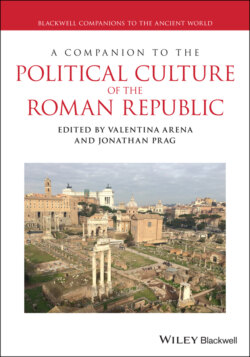Читать книгу A Companion to the Political Culture of the Roman Republic - Группа авторов - Страница 42
FURTHER READING
ОглавлениеThis chapter draws on the extensive literature on classical republicanism during the English Revolution, which in general treats Roman texts and the Roman constitution alongside the intellectual influences and constitutional models provided by other ancient (Greek, Hebrew) and early modern republics (especially Venice). Fink 1945 and Pocock 1975 have been foundational texts in the study of classical republicanism, Fink emphasising the idea of a ‘mixed constitution’, Pocock arguing that Aristotelian ideas were developed in particular ways in the Florentine context, particularly by Machiavelli, and transmitted to civil war England; a series of works by Quentin Skinner, many now collected in revised form in his Visions of Politics, has argued for the Roman heritage of a core classical republican idea of liberty (Skinner 1998, 2006). Scott 2004 and Rahe 2008 provide book-length overviews of classical republicanism in the English Revolution. Book-length studies or collections on specific republican authors include Armitage et al. 1995, Hammersley 2019, Worden 2007 and Scott 1988. On the role of classical texts and languages in early modern English education at school and university level see Clark 1948, Peltonen 2013 and Feingold 1997. Cox Jensen 2012 is illuminating on the availability of texts and translations and on the actual reading practices and concerns of students using these texts.
